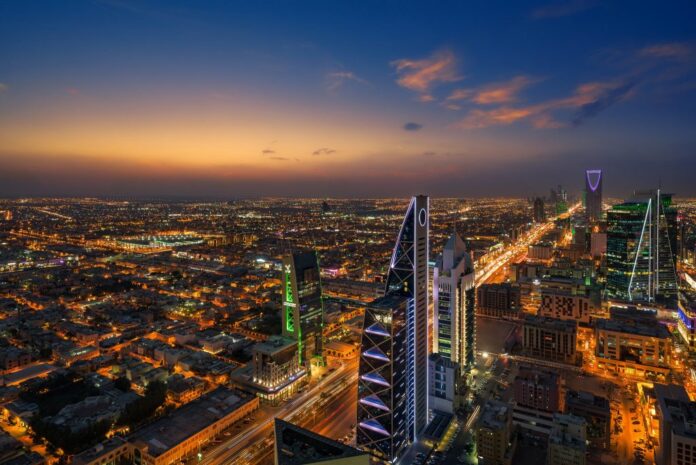RIYADH: The value of contracts awarded in the second quarter of the year more than doubled to SR25.8 billion ($6.9 billion) in Saudi Arabia, as the Kingdom continued to bounce back from the global pandemic.
This figure marks the third consecutive quarter of growth after the slowdown caused by the health crisis was at its most severe in the third quarter of 2020, according to the latest quarterly report by the US-Saudi Business Council.
The value of contracts awarded in the second quarter of this year jumped by 134 percent on 12 months ago and by 34 percent quarter-on-quarter.
However, the council points to rising costs and material shortages in the “fragile” construction sector that may harm domestic growth over the coming months.
The energy industry was the top-performing area, scooping 13 contracts in the period growing by SR2.4 billion or 46 percent quarter-on-quarter. and by SR7.2 billion, just over three times year-on-year.
The petrochemicals and the water sector came in second and third, respectively.
By region, the Kingdom’s Eastern Province captured the largest share of contracts over the period, with SR11.7 billion, or 45 percent of the total value of all contracts awarded. It was boosted by new work for the petrochemicals, oil and gas and the water industry.
The Riyadh region enjoyed the second-highest value of awarded contracts with SR6.7 billion, or 26 percent of the total. Several projects around Riyadh involved the development of the Sudair solar PV plant by ACWA Power and expansion developments by the Saudi Electricity Co.
This was followed by the Makkah region with SR3.8 billion, or 15 percent of contracts awarded. A key project in this area is the development of a residential housing complex in Obhur by the Ministry of Housing.
The survey reported that the Kingdom posted robust growth as the pandemic eases.
It said: “The rise in oil prices, which crossed the $80 per barrel mark in September and the gradual increase in production bodes well for future investments into the domestic economy.”
The body said that the non-oil sector grew by 8.4 percent during the period in real terms.
And added that housing starts remained “relatively robust in 2020 despite the pandemic but still lagged compared to 2019.”
The survey warned that the global supply chain continues to suffer from manpower shortages, significant transport costs, storage limitations, and the availability of raw goods.
In the year to date ready-mixed concrete prices lifted by 2 percent, iron by 3 percent, cabling by 24 percent, and timber by 8 percent, according to the General Authority for Statistics.
Albara’a Alwazir, director of the economic research at the US-Saudi Business Council, said: “The construction sector continues to witness a rebound in contract awards thus far in 2021 despite ongoing challenges due to the pandemic.”
The report said the country’s total revenues in the first half of the year hit SR453 billion ($121 billion) and “is on pace to surpass” the budgeted SR849 billion ($226 billion) earmarked for 2021.
It added: “The rise in oil revenues has prompted the Kingdom into a pro-cyclical spending pattern, with capital expenditures being a main beneficiary.”

